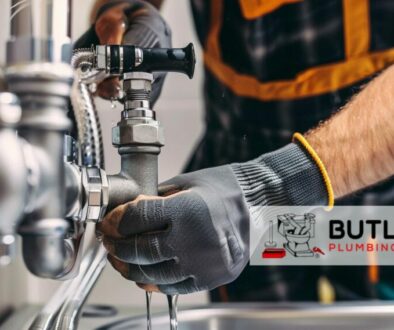How To Become a Plumber
Becoming a plumber combines education, hands-on training, and licensure, offering a pathway to a rewarding career with opportunities for growth and independence. This guide outlines the general steps to enter the plumbing profession, with a detailed look at the process within Oklahoma.
Education
Your journey starts with obtaining a high school diploma or GED, prioritizing mathematics and science courses to build a strong foundation in principles relevant to plumbing. This stage is crucial for understanding the technical aspects of the trade.
Vocational Training or Apprenticeship
After high school, you have two primary paths to gaining the necessary knowledge and skills in plumbing:
Vocational Training
Consider enrolling in a technical training program at a vocational school or community college. These programs, which often last between one to two years, cover plumbing theory, code requirements, blueprint reading, safety, and specific coursework on water supply, drainage systems, piping, venting, and fixture installation.
Apprenticeship
Alternatively, or following vocational training, enter an apprenticeship program. These programs, which last about 4-5 years, combine on-the-job training with classroom instruction. Offered by trade unions, plumbing companies, or professional organizations, apprenticeships allow you to learn the trade under the supervision of experienced plumbers while earning wages.
Licensure
Upon completing your apprenticeship, you are qualified to take the journeyman plumber exam. Passing this exam grants you a license to practice plumbing independently. As you gain experience, you can aim for master plumber status, which allows for higher responsibilities, including running a plumbing business or supervising large projects.
Continuous Learning
Engage in continuous education to stay updated on the latest plumbing codes, technologies, and practices. This commitment ensures your skills remain relevant and compliant with industry standards.

How to Become a Plumber in Oklahoma
The process to become a plumber in Oklahoma closely mirrors the general steps outlined above, with some specific considerations for state and local regulations.
Licensing in Oklahoma
After completing an apprenticeship in Oklahoma, candidates must pass the journeyman plumber exam administered by the Oklahoma Construction Industries Board (CIB) to earn their license. Further experience and education can lead to obtaining a master plumber license, offering greater professional opportunities within the state.
Local Codes and Regulations
Familiarize yourself with Oklahoma City’s unique plumbing codes and regulations to ensure all work complies with municipal standards. This knowledge is crucial for passing licensing exams and performing compliant plumbing work.
Professional Development
Joining professional organizations, like the Plumbing-Heating-Cooling Contractors Association (PHCC), can offer networking opportunities, job leads, and updates on industry trends. Such participation supports career advancement and professional growth.
Insurance and Bonding
Learn about insurance and bonding requirements in Oklahoma, which are essential for protecting your business and clients.
Business Skills
If you plan to operate your own plumbing business, developing skills in business management and customer service is vital for enhancing your company’s success and reputation.





